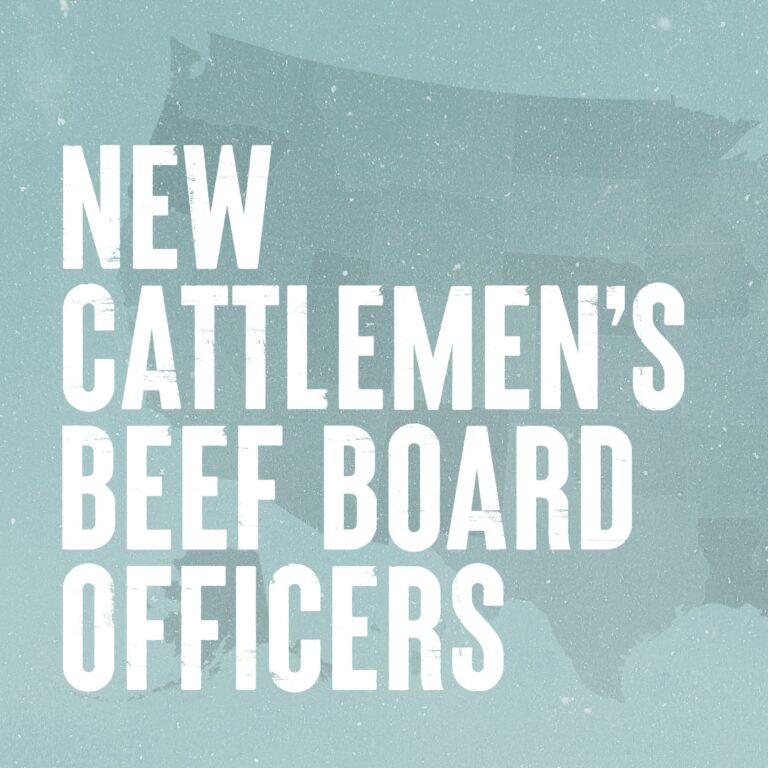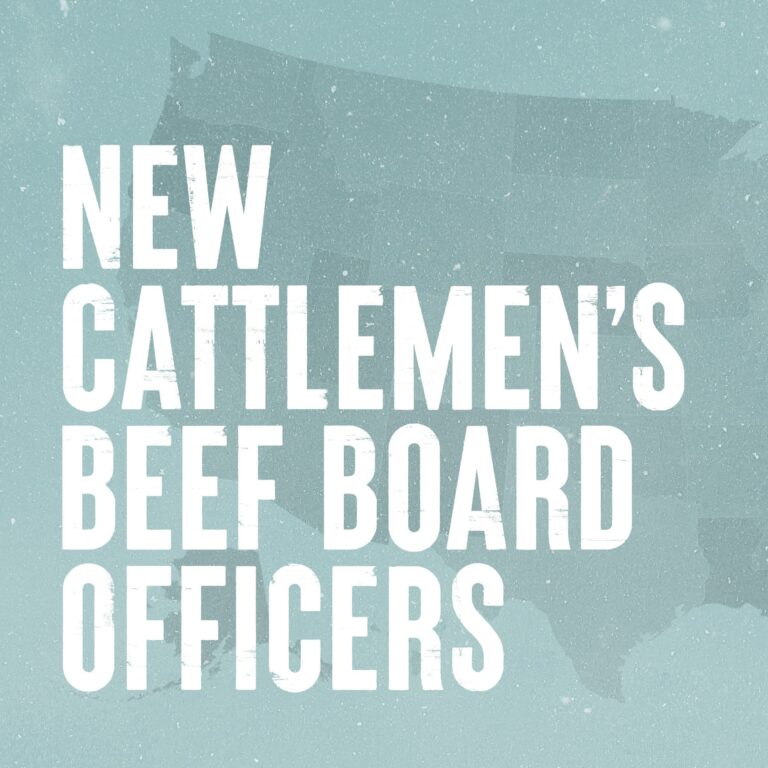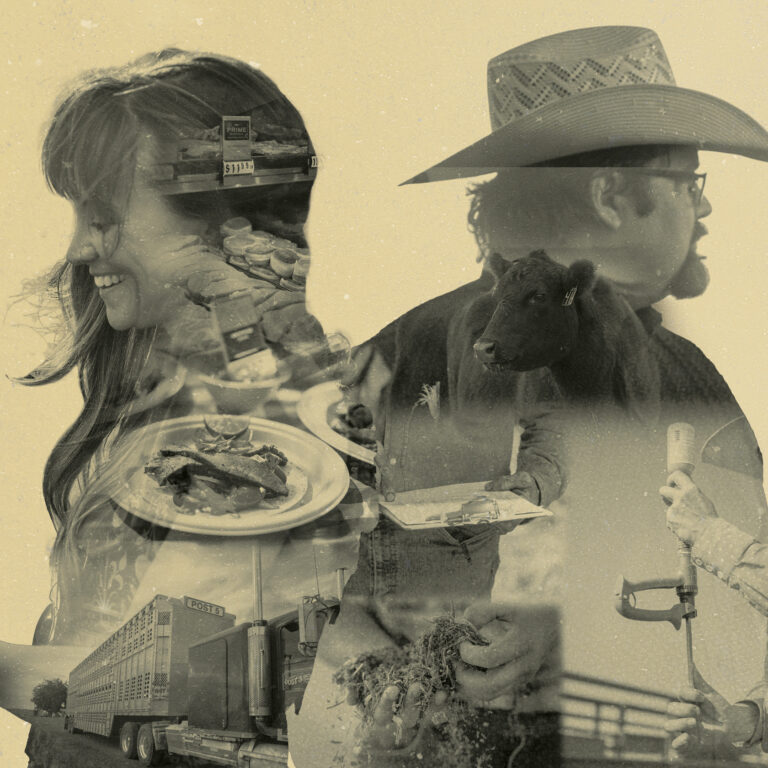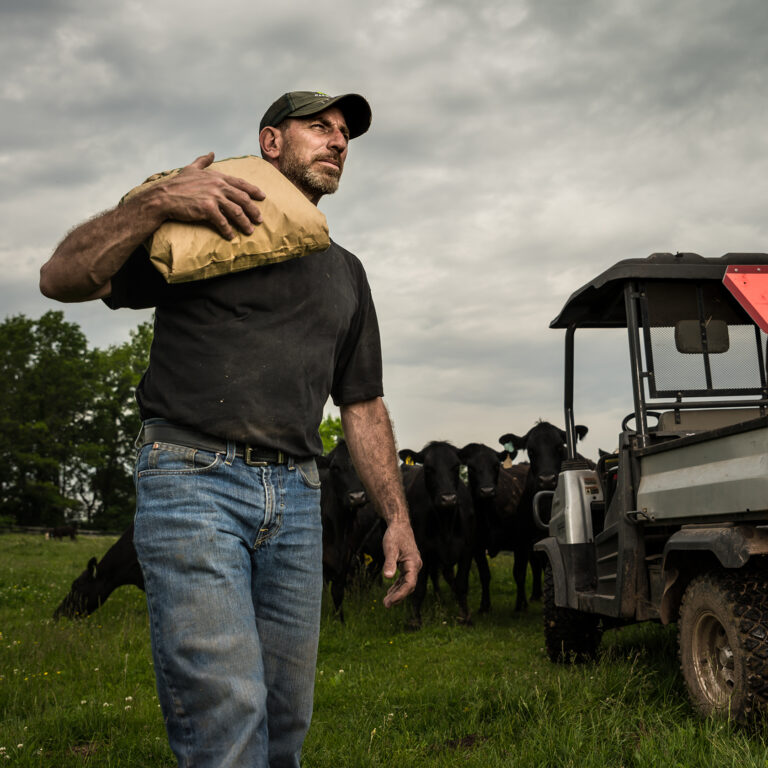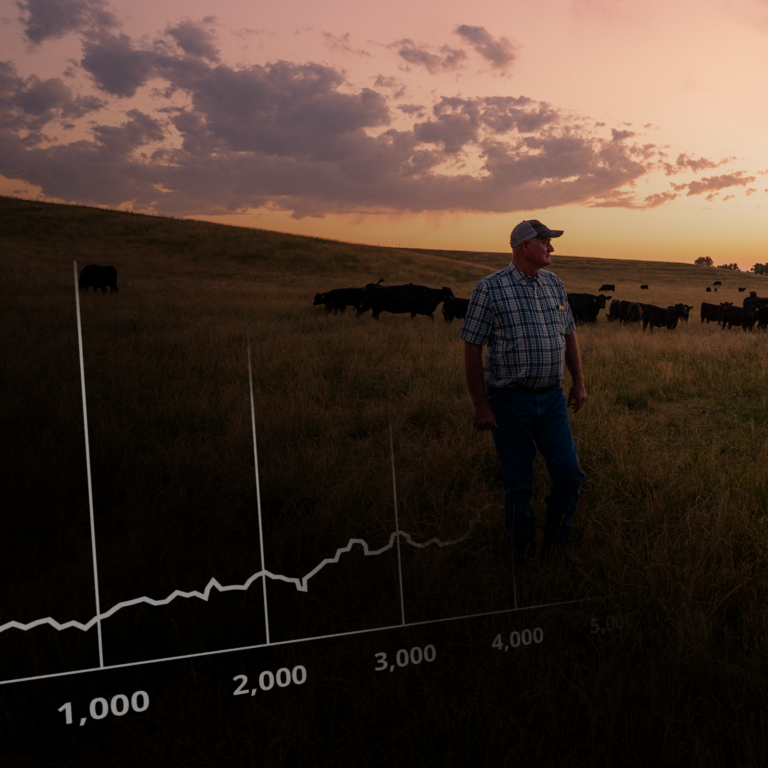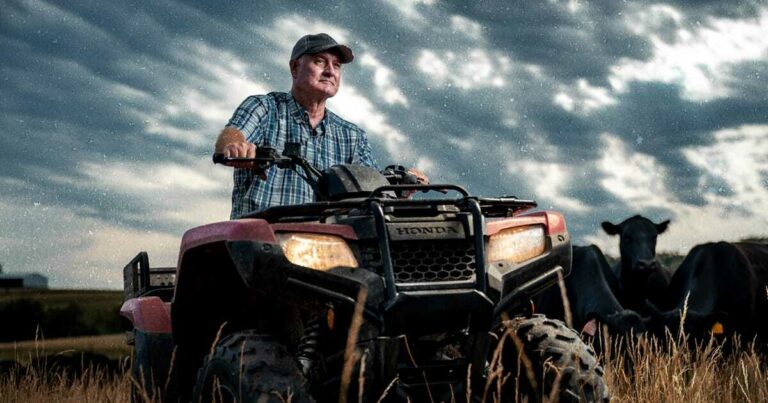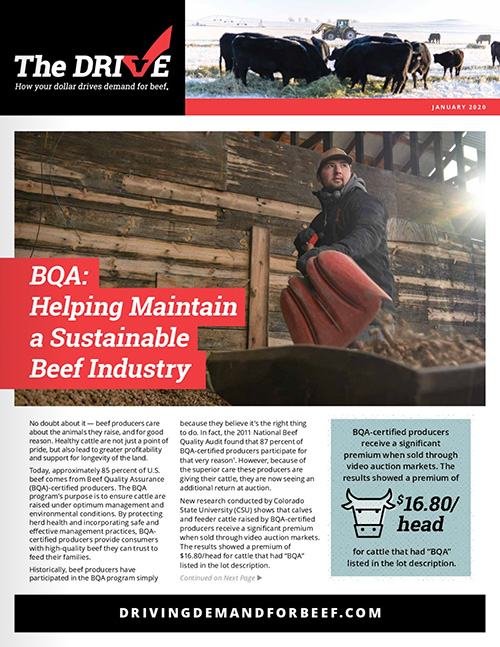Educating with Purpose
In order to drive demand for beef, the Beef Checkoff invests in these program areas: promotion, research, foreign marketing, industry information, consumer information and producer communications. Each of these programs is unique in its own right, but there’s one major component found in each: education.
Many producers believe that educating the consumer and general public about beef should be the Checkoff’s first priority. And while, yes, the Checkoff works tirelessly to educate the public on hot topics like beef’s environmental impact, beef’s nutritional attributes and how cattle are raised, the Checkoff actually dives deeper, looking beyond the typical American consumer to educate the scientific community, health professionals, educators, communities abroad and cattle producers on relevant topics. Here are just a few examples of how the Beef Checkoff educates and influences each of these audiences with a purpose.
Consumers
Through a multi-pronged approach, the Beef Checkoff engages and informs consumers on beef – and the cattlemen and women behind beef production.
Targeting Northeast Consumers
The Northeastern U.S. is home to nearly 72 million consumers, which equates to approximately 22 percent of the U.S. population and encompasses four of the top 10 U.S. metropolitan areas: New York City, Boston, Philadelphia and Washington D.C. the Northeast Beef Promotion Initiative, a subcontractor to the Beef Checkoff, engages with consumers through virtual, in-person and digital advertising campaigns.
“Telling Your Antibiotic Story” Campaign
The National Livestock Producers Association, a contractor to the Beef Checkoff, and the Kentucky Beef Council video series outlines how producers understand the need for careful antibiotic stewardship and work hard to use antibiotics responsibly.
“Nicely Done, Beef” Campaign
This consumer campaign includes advertisements geared toward social media and online streaming users. It addresses beef misconceptions, highlights beef’s unique attributes and shows sustainability in the beef industry.
“Chefs and Producers” Video Series
To showcase the Beef Quality Assurance program, beef farmers and ranchers are coming together with chefs for a unique video series developed in partnership with Chef’s Roll, a global culinary community.
“Real Facts About Real Beef” Campaign
To address beef production and nutrition myths, this video series highlights real farmers and ranchers and other beef experts candidly addressing some of the most common misconceptions and questions about cattle and beef.
“Rethink the Ranch” Campaign
Videos and sponsored online articles focused on the people who produce beef help tell the story of what it takes to get beef from pasture to plate.
VealFarm.com
Through Checkoff-funded VealFarm.com, consumers learn about veal farming today and veal farmers’ commitment to ensuring their calves’ health and well-being while being good environmental stewards.
SCIENTIFIC COMMUNITY & HEALTH PROFESSIONALS
The Beef Checkoff continues to examine beef’s role in a healthy diet and has countless ongoing research studies and partnerships with health influencers to educate them about beef.
Beef and Mental Health
Checkoff-supported research demonstrates that meat consumption is positively associated with better mental health. “Meat and mental health: a systematic review of meat abstention and depression, anxiety, and related phenomena,” published by Taylor & Francis in 2020, has been downloaded more than 50,000 times, making it one of the top ten most-downloaded articles by Taylor & Francis.
2020 Virtual Food and Nutrition Conference and Expo
More than 10,000 registered dietitian nutritionists, nutrition science researchers, healthcare providers and industry leaders attended this event. The Checkoff supported an educational session that highlighted Beef Checkoff-funded research and emphasized the role high-quality proteins like beef have in optimizing all aspects of human strength.
“Eating in the Early Years” Event
This week-long educational experience for pediatric-focused health professionals increased awareness of beef and recommended it as a nutrient-rich, early food for infants, toddlers and children.
SCAN and CPSDA Collaboration
Member dietitians with Sports, Cardiovascular and Wellness Nutrition (SCAN) – the largest dietetic practice group of the Academy of Nutrition and Dietetics – and the Collegiate and Professional Sports Dietitians Association received email blasts including strength resources from Beef. It’s What’s For Dinner.
Nutrition & Dietetics Beef Cook-Along Webinar
The Checkoff partnered with Liz Weiss, MS, RDN, to host an interactive, beef cook-along style webinar for approximately 30 members of the Connecticut Academy of Nutrition & Dietetics.
Prepared Beef Nutrition Research
Foundation for Meat and Poultry Research, a contractor to the Beef Checkoff, established a risk-benefit analysis of the consumption of further processed beef as a healthy lifestyle component and communicated its findings to food and nutrition researchers.
Dietary Guidelines Involvement
The Dietary Guidelines For Americans provide a roadmap for healthy eating and serve as the foundation for health experts’ recommendations to patients and clients. The Checkoff submitted 21 sets of public comments and more than 100 research studies supporting beef’s role in a healthy diet.
EDUCATORS
To grow a scientifically literate society, the Beef Checkoff implements strategies and tactics to get beef in the classroom.
Beef E-Learning Courses for Educators
Two Livestream events engaged by more than 1,000 middle and high school educators discussed how the beef production process provides an excellent context for exploring science.
On the Farm Immersion Experiences
Educators experience beef production firsthand through virtual video tours and learn from U.S. beef producers, researchers, nutritionists and veterinarians about production practices.
Beef and Veal in the Culinary Classroom Program
This program provides financial support for the use of fresh beef or veal in northeastern U.S. schools. This program assists culinary programs with student’s knowledge of beef cutting, cookery, nutrition and safety.
State Beef Council Programs
Many State Beef Councils have individual programs to get beef in schools within their state. These programs provide numerous beef resources, from classroom materials to facilitate instruction in beef production courses to virtual learning opportunities for teachers or grant programs to get fresh beef in home education courses. For example, in 2020 the New York Beef Council offered a “Top Cuts” beef contest and a series of webinars, including a virtual farm tour and sessions on beef industry careers, marketing and recipe development opportunities for all teachers.
ABROAD
U.S. Meat Export Federation, a contractor to the Beef Checkoff, focuses on promoting alternative cuts and variety meat products where culturally appropriate. By educating influential people in other countries about U.S. beef products’ unique attributes, the Beef Checkoff influences international buyers to choose U.S. beef.
Seminars/Trainings/Cutting Demonstrations
Education at all levels of the supply chain, from importers/distributors to retail meat department staff, is a key cornerstone of market development. Seminars may include hands-on cutting demonstrations, cooking demonstrations, menu development training, salesforce seminars and webinars.
Trade Teams
Hosting international trade teams here in the U.S. with importers/distributors, decision-makers, targeted foodservice and retail companies and media influencers gives participants a thorough and interactive overview of the U.S. beef industry. These teams learn about U.S. beef production techniques, the range of beef products available, safety and inspection procedures and food service/retail trends.
Cooking Demos
Whether in person or virtually through social media or online events, USMEF utilizes chefs and influencers to demonstrate U.S. beef cuts’ quality and advantages.
PRODUCER STAKEHOLDERS
The Beef Checkoff provides opportunities for producer education and advancement.
Beef Quality Assurance
BQA is a certification program for producers to learn and ensure cattle are raised under optimum management and environmental conditions. By protecting herd health and incorporating safe and effective management practices, BQA-certified producers provide consumers with high-quality beef they can trust to feed their families.
Veal Quality Assurance
VQA is a certification program for producers to ensure that veal calves receive quality care through every stage of life and are raised using production standards that result in a safe, wholesome, high-quality product that meets regulatory and customer expectations.
Masters of Beef Advocacy
The MBA program is a free, self-guided online course that provides farmers, ranchers, service providers, consumers and all beef community members with the tools and resources they need to become beef advocates and answer tough questions about beef and raising cattle.
Annual Antibiotic Symposium
Producers are encouraged to attend this yearly symposium, funded in part by the Beef Checkoff. At the symposium, they receive updates on global issues affecting U.S. animal and human health and engage in conversations about how to better share information about antibiotic stewardship and antimicrobial resistance with a variety of audiences in and outside of agriculture.
Producer Communications Program
Producers learn about the Beef Checkoff and how Checkoff investments are being put to work to promote beef demand through The Drive publishing platform, which consists of traditional, digital and social media platforms, web presence, media relations and campaigns.
The Beef Checkoff program was established as part of the 1985 Farm Bill. The checkoff assesses $1 per head on the sale of live domestic and imported cattle, in addition to a comparable assessment on imported beef and beef products. States may retain up to 50 cents on the dollar and forward the other 50 cents per head to the Cattlemen’s Beef Promotion and Research Board, which administers the national checkoff program, subject to USDA approval.



